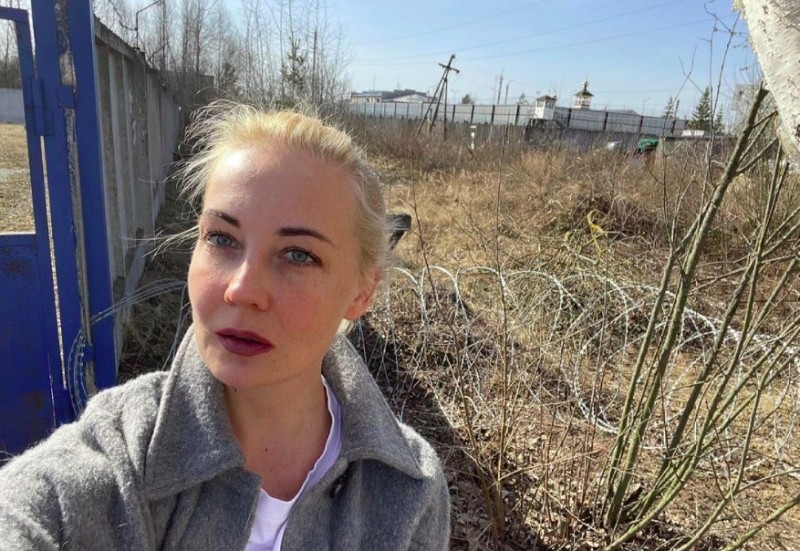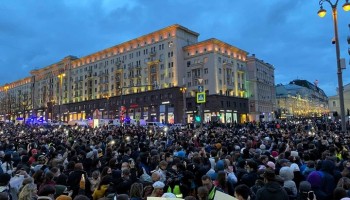“This is how the Kremlin is getting ready for the elections -- two of our employees went missing in Dagestan, their whereabouts are unknown for two days, while another employee was detained in Voronezh… as well as our coordinator in St. Petersburg,” Navalny’s spokeswoman, Kira Yarmysh, announced on Twitter, referring to the September elections for the Duma.
While authorities were going after his supporters, Navalny’s wife Yulia warned about her husband’s health condition. Navalny has entered a hunger strike end of March because he is not allowed to see a doctor.
“After I visited Alexei, I’m worried about him even more,” Yulia Navalnaya wrote on Instagram, describing him as “skin wrapped around bones.”
Team Navalny tweeted on Monday that Russian authorities may soon start force-feeding the opposition leader.
“Seeing the seriousness of the hunger strike, the administration is threatening every day to start force-feeding him,” the team wrote, adding that Navalny complained last week that he had fever and was coughing but that the prison administration “is not allowing a doctor to see” him.
Russian authorities arrested Navalny in January after he returned to Moscow from Berlin, where he was treated after being poisoned in Russia with a nerve agent called Novichok.
Navalny was then sentenced to two years and eight months in prison for violating the terms of his suspended sentence in the so-called Yves Rocher case, as he failed to report to police while he was recovering in a Berlin hospital where he part of the time was in a coma.
The top opposition leader was jailed in Moscow until mid-March and then sent to the correctional colony IK-2 in the city of Pokrov, Vladimir region, where he was placed in the notorious Enhanced Control Sector A.
The facility has been described as a prison with a “frightening reputation” because of the humiliation and severe beatings of inmates, the sadistic behavior of employees, and the absence of medical assistance.
Western governments and human rights associations called Navalny’s trial and sentence politically motivated. The U.S. and the European Union sanctioned a number of Russian officials involved in Navalny’s case.






